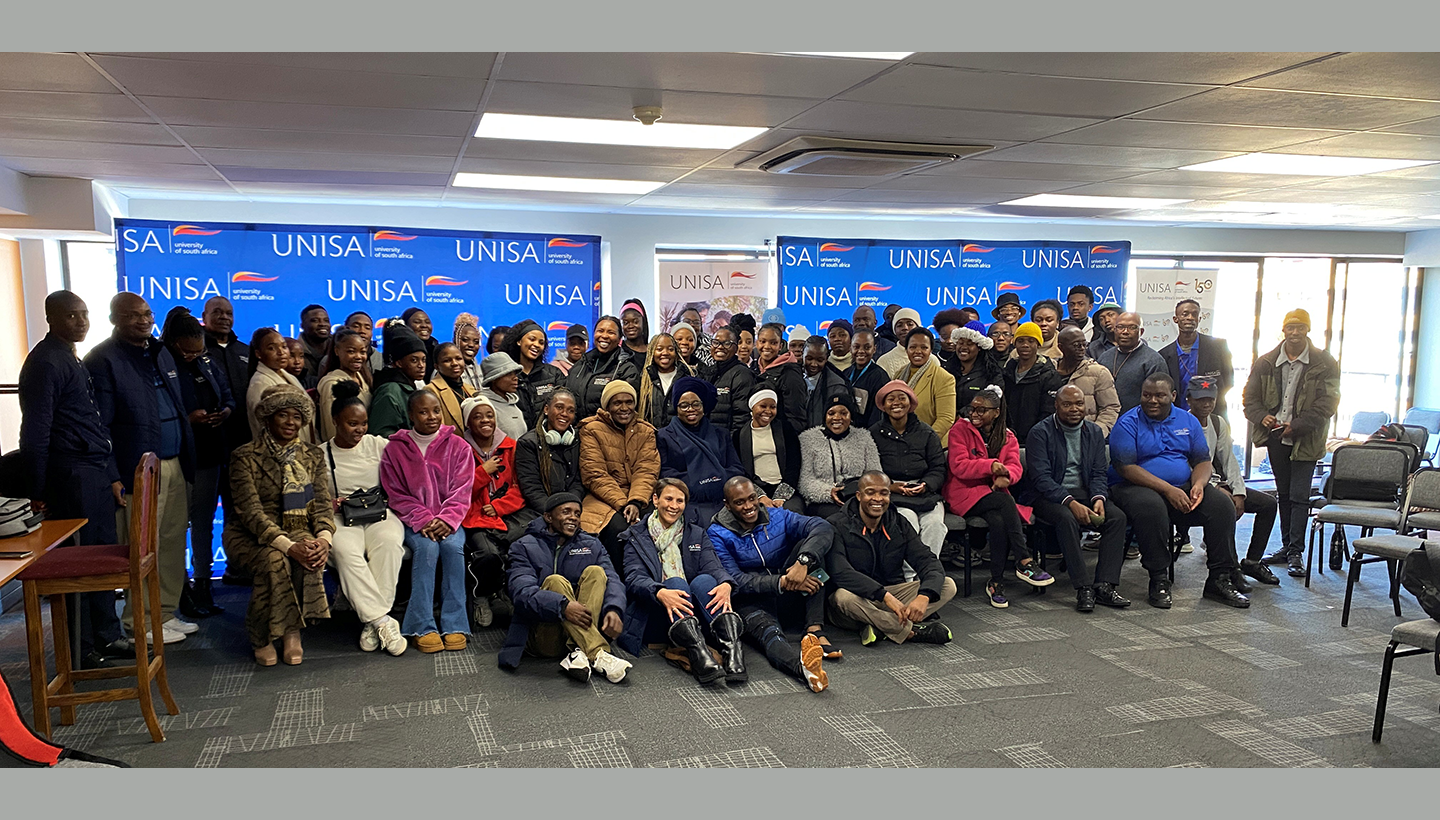News & Events
Unisa renders real-time, student-centred support at correctional and regional centres

Prof Meahabo Magano, Executive Director of DTFSL, led the team in their mission to support Unisa students at correctional and regional centres
The Department of Tuition Support and Facilitation of Learning (DTSFL), led by Executive Director Professor Meahabo Magano, adopted a new approach this year to provide real-time, student-centred support for Unisa-registered students at correctional and regional centres. The first semester focused on post-registration orientations, including helping students claim myLife accounts and access online MOOCs for first-year students. The second semester shifted to supporting students with academic, assessment, and financial matters.
Reflecting on the current strategy
The DTSFL received positive feedback on the impact of its visits to correctional and regional centres, which are designed to provide real-time support to Unisa students from diverse backgrounds. These visits have played a crucial role in bridging gaps, offering real-time student-centred support, and promoting a sense of inclusion among students who might face significant barriers to accessing higher education.
A collaborative approach
A collaborative approach among academic and support departments, the Student Representative Council (SRC), Unisa regional centres, and the Department of Correctional Services (DCS) has produced significant outcomes. The colleges were provided a platform to communicate their expectations for the second semester with students participating both physically and virtually. Furthermore, the Directorate Student Assessment and Administration (DSAA), Directorate Student Admissions and Registrations (DSAR), the Study Material, Production and Delivery (SMPD) Department and Finance Department addressed administrative queries. At the same time, the colleges responded to module-specific and other academic questions in real-time.
Student engagements
The SRC participated in certain regions, providing valuable feedback on the approach by the DTSFL. They highlighted positives as well as opportunities for improvement. A major concern raised was the need to protect student integrity and privacy when addressing issues in real time, ensuring that communication remains respectful and confidential.
DTSFL: Student support at correctional and regional centres
The DTSFL’s Directorate: Instructional Support and Services (DISS), Directorate: Curriculum Development and Transformation (DCDT), Academic Development Open Virtual Hub (ADOVH), Directorate: Language Services (DLS), and Student Retention Unit (SRU) provided updates on their continuous efforts to support students in both correctional and regional centres. These updates highlighted initiatives aimed at offering accessible learning resources and tailored support to address all the academic and administrative needs of students.
Regional centres: Student support services
Regional centres outlined the various support services available to registered students at correctional and regional centres. These services include academic assistance, access to learning resources, digital resources, and direct communication channels for addressing student questions and providing guidance.
Colleges: Expectations for the second semester
The Unisa College of Accounting Sciences (CAS), College of Agricultural and Environmental Sciences (CAES), College of Science, Engineering and Technology (CSET), College of Education (CEDU), College of Economic Management Sciences (CEMS), College of Human Sciences (CHS) and College of Law (CLAW) participated in the correctional and regional visits, to communicate second semester expectations.
Students were encouraged to:
- manage study time effectively
- utilise the myLife platform
- attend online classes and access recorded sessions
- prepare thoroughly for online examinations
- regularly access myUnisa to interact with lecturers and students
- contact module lecturers for academic assistance
- submit assessments on time
- complete the academic integrity course
- engage with ADOVH for additional support
- participate in student orientation programs
- strive for academic excellence
The voice of Unisa students
This semester, students face unique challenges. While some were resolved in real-time, others remain unresolved.
Major challenges raised by students across all regions include:
- Insufficient data for online learning: Students requested increased data allocations to support online teaching, learning, research, and engaged scholarship. Activities such as attending virtual classes, completing assessments, uploading videos, and accessing resources on platforms like YouTube require substantial data. Notably, many students have requested printed learning materials due to limited data access.
- Registration and examination issues: Critical issues involve unresolved registration statuses and outstanding examination results, particularly for NSFAS-funded students across all correctional and regional centres.
- Second-semester assessments: Students face difficulties meeting second-semester assessment deadlines due to uncertainties around temporary registration or delayed NSFAS funding, restricting access to essential learning materials and affecting effective preparation.
- Certificate in the Theory of Accounting (CTA): Students expressed concerns about difficulties involved in carrying over the CTA module into the next semester.
Way forward
Looking ahead, the DTSFL is committed to strengthening collaboration with regional centres, academic departments and support departments to improve student engagement and support. This approach prioritises expanding access to regional services, protecting student privacy and confidentiality, and increasing responsiveness to student feedback. The focus remains on creating flexible, inclusive learning environments that accommodate the diverse circumstances of Unisa students.
* By Lillian Maja, Language Practitioner, Directorate Language Services
Publish date: 2025-08-26 00:00:00.0

